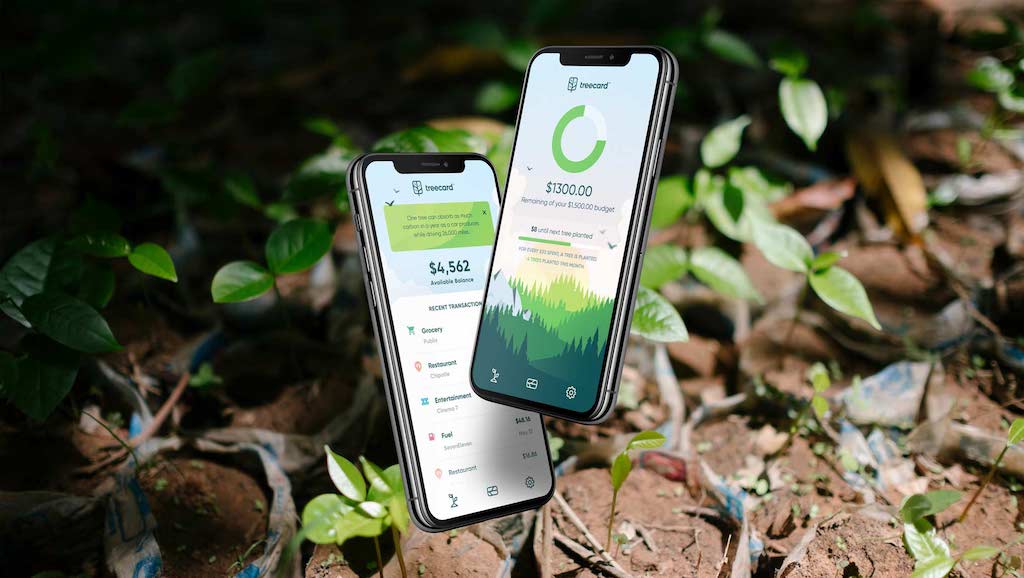3 Mins Read
There’s now a way to plant trees with every single payment you make, thanks to a new debit card called TreeCard. Backed by Ecosia, the search engine that plants trees, TreeCard is the world’s first wooden debit card – and it redirects 80% of its profits to forest restoration projects across the world.
Founded by four Londoners, TreeCard is the world’s very first wooden debit card that helps plant trees with every purchase. Soon to be officially launched, the young startup has already been seed-funded by Ecosia, the tree-planting search engine that is on a mission to fight climate change with every search you make, without tracking your data.
The card itself is 100% free to users – meaning anyone can reserve a card – and with every payment made, it uses 80% of its profits that it gets from merchants who pay a small transaction fee to help plant trees across Ecosia’s existing 38 reforestation projects located around the world, which are subject to strict monitoring using satellite technology and field visits. Every US$60 spent translates to one tree planted.
“You can use it alongside your regular bank, so you don’t need to switch banks. It’s super simple to set up and use,” explained Jamie Cox, co-founder of TreeCard, in a recent interview. “By using your debit card, you’ll grow your very own forest, and you can track your impact with the app. TreeCard also supports Apple Pay, Android Pay, and Samsung Pay, so you can use it as a virtual debit card.”
By using your debit card, you’ll grow your very own forest.
Jamie Cox, Co-Founder of TreeCard

Since it’s made from sustainably sourced FSC-certified cherry wood, each card is also unique in appearance. According to the company, one single tree can produce more than 300,000 cards and does not contribute to plastic pollution, by contrast to conventional cards that are usually made from several layers of hard-to-recycle laminated plastics.
In addition, TreeCard comes with an app that helps you keep track of all your transactions, which encourages more mindful spending and consumption habits. Of course, the number of trees you have helped to plant will also be displayed on the app.
“Empowering everyone to tackle the climate crisis is why Ecosia exists. We want to plant and protect billions of trees, and we can do so by providing innovative tools that enable you to live a greener life,” said Ecosia on their website’s blog.
We want to be the largest challenger bank in the world and help usher in a new type of purpose-driven business that flips capitalism on its head. We can’t keep prioritising profit over all else. The climate crisis affects everybody, especially the most vulnerable. Planting trees is a way for us all to take direct action.
Jamie Cox, Co-Founder of TreeCard

“That’s why we provided seed-funding for TreeCard. We made an investment, in other words, that will help us plant more trees — since debit cards, like search engines, can generate a lot of money.”
The impact that this business model could have on the environment could be huge if consumers adopt the eco-friendly wooden debit card. If it manages to get as many customers as Chime, the popular fee-free debit card operated by the neobank company of the same name, TreeCard will be able to plant an additional 360 million trees annually.
Ultimately, Cox hopes that his startup will encourage the growth of a business ecosystem that places the planet and people before profits.
“We want to be the largest challenger bank in the world and help usher in a new type of purpose-driven business that flips capitalism on its head,” the co-founder said. “We can’t keep prioritising profit over all else. The climate crisis affects everybody, especially the most vulnerable. Planting trees is a way for us all to take direct action.”
All images courtesy of TreeCard / Ecosia.




